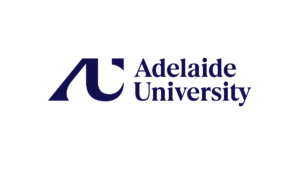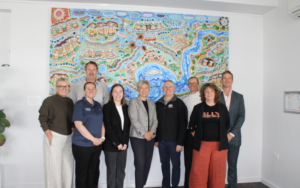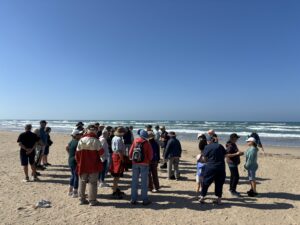An independent evaluation has concluded that the Goyder Institute’s second term research program (2015-2020) was highly successful, delivering important research that influenced priority water policies and improved economic, environmental, cultural and social outcomes within South Australia.
In addition to Videos and Project Highlight Summaries produced for individual projects (links below), a summary of the overall success is presented in a recently released video:
The evaluation was conducted by Aither using well established evaluation techniques. Outcomes were evaluated against the goals and objectives of second term Strategic Research Plan and included interviews and surveys of project team members, end-users and stakeholders, and a review of project outputs. Aither found that:
- The research improved decision making and policy development for water management across South Australia.
- Collaboration between partner agencies and end-users was highly valued.
- The research program was designed and delivered successfully with high quality, independent and rigorous outputs.

Collaboration – a key to success
A key aspect of the success of the second-term was the innovative model that consistently delivered high-quality, collaborative research to address priority water management issues for South Australia and Australia. Importantly, collaboration occurred:
- between researchers of different disciplines and organisations that allowed the research to address complex water management problems in a holistic manner – this included 19 project teams of researchers from across 20 Institute partner and affiliate research organisations
- between researchers and end-users that facilitated the research being adopted – this included collaboration of the research teams with 18 different end-user organisations
- at each stage of the research-adoption pathway, from identifying priorities, scoping projects, delivering projects and knowledge adoption.
Cultural, economic, environmental and social impacts
Aither concluded that the research undertaken in the second term successfully delivered a range of important economic, environmental, cultural and social outcomes across the three priority Impact Areas:
- Finding Long-term Outback Water Solutions, Stage 3 (G-FLOWS 3) – discovered new water sources to support the wellbeing and economic opportunities in remote communities of the Anangu Pitjantjatjar Yankunytjatjara Lands [video] [DEW video clip] [project highlight]
- Sustainable irrigation in the Northern Adelaide Plains – identified strategies to ensure the sustainable use of recycled water of the Northern Adelaide Irrigation Scheme for agriculture [video] [project highlight]
- Small-scale desalination – tested the potential of a low-cost, low-energy, desalination technology to treat brackish water to support agriculture [project highlight]
- Northern corridor – identified future water management options to support economic activity along the coastal belt north of Adelaide through to Whyalla
- Independent South-East science review – informed updated water allocations to ensure sustainable water supplies for agriculture, groundwater-dependent ecosystems and forestry [project summary]
- From salt to C – established a proof of concept for coastal wetland restoration for carbon sequestration through tidal reconnection, which can result in investment through the federal Emissions Reduction Fund (ERF) and deliver environment and social co-benefits [video] [project highlight] [Blue carbon research highlights]
- Coastal carbon opportunities – informed the Blue Carbon Strategy for South Australia by identifying the potential carbon storage capacity of coastal habitats at the state scale [video] [project highlight] [Blue carbon research highlights]
- Carbon offsets – identified water supply catchment revegetation as the most economically viable land-based intervention for establishing commercial carbon sequestration projects [video] [project highlight]
- Soil carbon sequestration – found mixing subsoil clay increases carbon sequestration and agricultural productivity, providing opportunity for investment under the ERF [project highlight]
- Climate resilience and analysis tools – developed innovative tools to adapt water resource management to mitigate climate change impacts [video] [project highlight]
- River Murray ecological connectivity – tools developed are being used by river operators to mitigate water quality risks and associated water treatment costs and improve the ecosystem health of the River Murray associated with floodplain infrastructure operations [video] [project highlight]
- Coorong expert panel – provided a scientific foundation for the establishment of a $70M restoration program
- Ngarrindjeri Yannarumi – developed a new, culturally appropriate approach for incorporating indigenous knowledge into water planning in the Murray Darling Basin [video]
- Spencer Gulf socio-ecological assessment – developed tools for the integrated assessment of social, economic and environmental values in development proposals [video] [project highlight] [Gulfview fact sheet] [socio-ecological status fact sheet]
- Urgent Coorong investigations – identified priority wetlands in the surrounding landscape for restoration efforts to support key species of the Coorong
- Stormwater interventions – developed a decision-support tool to support the SA Government to identify urban water management interventions to improve Adelaide’s coastal water quality.
Research excellence – critical for underpinning decisions
End-users identified that the quality of the research outputs was important for supporting decisions by providing an independent and robust knowledge base for evidence-based decision. The research excellence involved in the research program is reflected in:
- The diversity and number of internationally recognised researchers involved in projects – 187 scientists (40.3 FTEs) from 20 research organisations, including 25 early career researchers and masters and doctorate students.
- The large number of high-quality research outputs – 54 peer-reviewed technical reports, 37 journal papers, with more in preparation and 49 conference presentations.
- A series of knowledge adoption products used to facilitate the adoption of research into policy – 16 knowledge adoption workshops, 17 project summaries and fact-sheets, 11 project videos and 4 webinars, and implementation of data and model management plans for all projects – ensuring the data and models are available to future decision-makers and researchers.
Building on the success of the second term
The evaluation recommended that as the Goyder Institute evolves, it should retain the features that made the second term successful, including its collaborative approach, undertaking independent research and focus on research that can directly inform and drive decision-making and improve outcomes for end-users. Opportunities for improvement focused on project management, including that project funding, timelines, and the approach to project management could include more explicit consideration of collaboration needs.
The success of the second term research program provided the basis for the establishment of the third term of the Institute. This is allowing the important collaboration to continue to provide critical knowledge to support important cultural, economic and environmental values into the future. This will also allow the Institute to expand its collaborative model to have greater focus on collaboration with industries and communities.
For further information about the Goyder Institute’s second term research program or the Strategic Plan and activities for the third term (2020-2023), contact Dr Kane Aldridge, Director of the Goyder Institute for Water Research.


